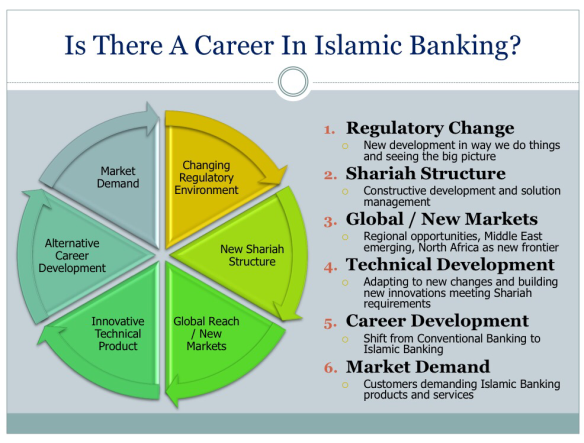MSc Islamic Banking and Finance | Impact on Global Economic Stability

The field of MSc Islamic Banking and Finance is gaining significant attention globally as an important and growing segment of the financial sector. This specialized area of study focuses on the principles of Islamic finance, which differ markedly from conventional banking systems by adhering to Sharia law. As more financial professionals seek an MSc in Islamic Banking and Finance, it becomes crucial to examine how these principles can influence global economic stability. This article explores the fundamental aspects of Islamic finance and their potential to contribute to a more stable global economy.
Core Principles of Islamic Finance
Islamic finance is based on a framework that emphasizes fairness, transparency, and ethical behavior. Key principles include:
- Prohibition of Interest (Riba): Islamic finance bans the payment or receipt of interest, promoting profit and loss sharing instead.
- Risk Sharing: Transactions must involve risk sharing to foster a sense of partnership between the borrower and lender.
- Asset-Backed Investments: All financial activities must be backed by tangible assets or services, which helps reduce speculation and uncertainty.
- Prohibition of Speculative Behavior (Gharar): Islamic finance discourages excessive uncertainty and speculative behavior, often seen in conventional financial instruments.
- Ethical Investments: Only investments in socially responsible and non-haram activities are permitted, excluding sectors like alcohol and gambling.
Impact on Economic Stability
The principles of Islamic finance could lead to greater economic stability:
- Stability Through Risk Sharing: The mutual risk involved in Islamic financial transactions encourages both parties to engage in thorough risk assessment and management.
- Reduction in Speculation: By insisting that transactions be asset-backed, Islamic finance reduces reliance on speculative investment, mitigating the risk of economic bubbles.
- Enhanced Financial Inclusion: Islamic finance offers ethical banking alternatives that appeal to a broader range of individuals, enhancing financial inclusivity and stability.
Global Influence of Islamic Finance
Islamic finance is leaving a mark on the global financial landscape:
- Resilience During Financial Crises: Islamic banks often show greater resilience during financial downturns due to their risk-averse nature.
- Expansion Beyond Muslim-majority Countries: Institutions offering Islamic financial services are increasingly found in non-Muslim countries, broadening their influence and integration into the global market.
Challenges Facing Islamic Finance
Despite its advantages, Islamic finance faces several challenges:
- Standardization Issues: Variations in Islamic finance practices across different regions can create inefficiencies.
- Regulatory Challenges: Developing regulatory frameworks for Islamic financial institutions is crucial for their integration into the global financial system.
- Limited Awareness and Understanding: Enhancing global understanding of Islamic finance principles is essential for wider adoption.
Conclusion
The MSc in Islamic Banking and Finance is not just an academic degree; it represents a significant shift towards integrating Islamic finance principles into global financial markets. By promoting risk-sharing, asset-backed financing, and ethical investments, Islamic finance could play a key role in fostering a more stable and equitable global economic system. However, achieving its full potential requires addressing challenges related to standardization, regulation, and global awareness. As the interest in Islamic finance continues to grow, so does its potential to impact global economic stability positively.
FAQS
What is MSc Islamic Banking and Finance?
The Master of Science (MSc) in Islamic Banking and Finance is an advanced academic program designed to provide students with a comprehensive understanding of Islamic financial principles, banking, and investment strategies that comply with Sharia law. This program equips graduates with the knowledge and skills to pursue careers in the growing field of Islamic finance.
How does Islamic Banking and Finance differ from conventional banking?
Islamic banking and finance differ fundamentally from conventional banking in several ways, including the prohibition of interest (riba), the requirement for risk sharing, the necessity for transactions to be backed by tangible assets, and the exclusion of investments in activities considered haram (forbidden) under Islamic law.
Who should consider studying MSc in Islamic Banking and Finance?
This program is ideal for finance professionals, banking staff, and students interested in an ethical and religiously compliant financial system. It’s also beneficial for individuals looking to diversify their expertise in different financial systems and for those aiming to contribute to financial inclusivity and stability through ethical banking practices.
What are the career opportunities with an MSc in Islamic Banking and Finance?
Graduates can pursue various roles in Islamic banks, regulatory agencies, investment firms, and financial consultancy roles. Positions may include Sharia compliance officer, Islamic financial planner, risk management specialist, and roles in Islamic insurance (takaful) and capital markets.
Can non-Muslims study and work in Islamic Banking and Finance?
Absolutely. The principles of Islamic finance focus on ethical and equitable financial practices, making them universally applicable and beneficial. Non-Muslims are welcome to study and work in this field, contributing to and benefiting from its ethical approaches.
Is Islamic Banking and Finance only popular in Muslim-majority countries?
How does Islamic Banking contribute to economic stability?
Islamic banking contributes to economic stability by promoting risk-sharing, avoiding excessive speculation, and focusing on asset-backed financing. These factors help prevent the kind of risky behavior that has led to financial crises in conventional banking systems.
Read more article: ”Comprehensive Guide To Dissertation Help In The United Kingdom”










